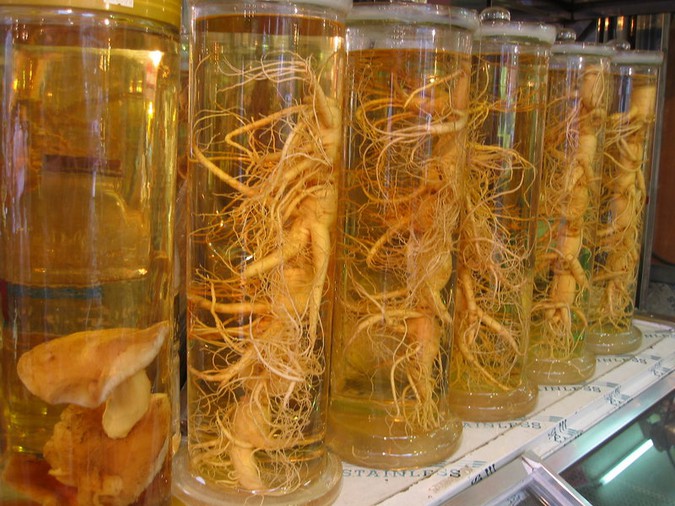
More healthy effects of ginseng discovered.
Not that long ago, I heard about ginseng in my Plants’ Diversity class, but it was not given that much relevance. I guess teachers teach better what they like most, and foreign plants (I am Portuguese) were not the thing for that teacher in particular. Soon after that, ginseng teas and supplements and a panoply of ginseng-made products appeared in the market, but still didn’t seem to have much effect on consumers. It was not the thing for them either. Then I finally realized I may not have given ginseng the importance it deserves.
Traditional ginseng
Ginseng is a multifaced plant, used mostly in China as an anti-aging product. It is grown essentially in Korea (Panax ginseng) and United States of America (Panax quinquefolius), but plays an important role in Canadian and Chinese culture. The Korean species is the most bought, by China.
Even though ginseng has been used for centuries, its properties only became subject of study in recent years. It is said to favor type II diabetes treatment and to cure sexual disfunction in men. Besides that, several laboratory-based studies have uncovered its anti-cancer properties: arrest of cell proliferation and promotion of cell suicide; inhibition of angiogenesis, invasion and metastasis.
Previous studies on Panax ginseng have shown that it boosts immune system by stimulating natural killer cells, T-cells, B-cells, and dendritic cells-dependent immune system response. It also inhibits ROS-induced oxidative stress and modulates the antioxidant defense systems.
Combatting flu
Following these observations, investigators from Georgia State University performed a study on mice which revealed an enhanced survival of influenza A infected mice, when ginseng extracts were administered prior to infection. How did ginseng show this protective effect?
Human epithelial cells, infected with influenza A usually undergo apoptosis. However, when Panax ginseng extract was present, cytopathogenic effects and cell death were reduced as well as ROS generation. These effects were also observed in mice and configure a remarkable property of ginseng which might soon be confirmed in humans.
Therefore, ginseng presents itself as a prospect solution for lung inflammation and has given proof of preventing severe disease caused by influenza A virus, which are both major problems in our society during flu season.
This article was originally published on United Academics.
Cover image: Wikimedia commons.
References
Doi: 10.3390/nu6020517
Stats
- Recommendations n/a n/a positive of 0 vote(s)
- Views 1239
- Comments 0